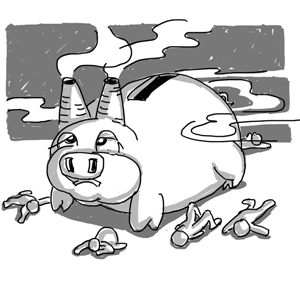Lessons must be drawn from accidents

Illustration: Lu Ting/GT
A fatal chemical leak in suburban Baoshan district that claimed 15 lives and injured 25 others shocked Shanghai and the whole country on August 31 when the city finally bid farewell to sizzling hot weather and residents began to enjoy the cool, comfortable autumn.
The accident occurred at around 10:50 am at Shanghai Weng's Cold Storage Industrial Co on Fengxiang Road, according to the official Sina Weibo account of the municipal government.
Shanghai Weng's Cold Storage specializes in import and export, logistics, processing, cold storage and international trade of seafood products, according to information previously shown on the company's website, which is now inaccessible.
Weng's has a cold storage covering an area of more than 30,000 square meters and a 3,000-square-meter temperature-regulated storage and a processing workshop for frozen foods, media reported.
With more investigation results made to known to the public, we have learnt that loose pipe fittings caused the liquid ammonia leak. In its liquid state, ammonia is used in the cold storage business because it is cheaper than other coolants, but as a gas it is highly caustic and will burn exposed skin and corrode the lungs if inhaled. Liquid ammonia becomes a gas above a temperature of -33.34 C.
This is the second time that liquid ammonia has come under the media spotlight in recent months. It first drew public attention early this summer.
On the morning of June 3, in an explosion caused by a liquid ammonia leak in a chicken processing company in the city of Changchun in Jilin Province, 120 people were killed and 77 were left injured.
The blast in the northeastern corner of the country should have served as a warning for companies that use the chemical and their watchdogs nationwide. But unfortunately, Shanghai still fell victim to a similar work safety accident.
Local media reported that national regulations require plants to obtain special permission from local work safety authorities if they use more than 360 tons of the coolant a year and employees working with liquid ammonia are supposed to receive special training.
According to the Shanghai Administration of Work Safety, an unlicensed food processing workshop had been added onto the approved plant after it was first built. The workshop occupied the fire escape passage.
The work safety administration was quoted by the Global Times as saying that the plant's owner designed the workshop and hired unqualified workers to build it. The employees who worked there had not been trained.
It's obvious that the owner of Weng's Storage should be held responsible for the tragedy. But at the same time, there are more details worth discussing to prevent the same thing from happening again.
According to statistics from the State Administration of Work Safety, a total of 36 deaths were reported in 10 liquid ammonia leak cases nationwide from 2002 to 2009, reported the 21st Century Business Herald. So it's understandable that both the public and authorities do not regard liquid ammonia as a very fatal chemical substance. This perspective must be reversed after the Changchun explosion.
Weng's isn't a new company; it has been in operation for quite some time. Had it not been for the accident, it would do a profitable business. The question is how many similar companies are there in Shanghai or other provinces? If there do exist loopholes in regulation and implementation, how can we sweep for buried mines?
According to professors from East China University of Science and Technology, the materials used in the fixing of equipment should be taken very seriously from the outset. Additionally, users of liquid ammonia should take precautions and know the necessary countermeasures in case accidents occur.
The work safety authority in Shanghai must also share responsibility for the accident. As a watchdog, its duties are not merely limited to information release after accidents occur. Random and regular inspections should be arranged to ensure that companies under its jurisdiction are running smoothly and safely. Weng's workshop is a case in point. After approving the main plant, it's also their obligation to continue inspecting the site afterwards. If the unlicensed workshop was discovered earlier and reconstruction was required, the accident may have been avoided.
Two months is not a short period. If the work safety watchdog in Shanghai took the Changchun explosion seriously and realized how dangerous ammonia is, it could have prevented the accident in the city.
People have to learn from failure. It's never too late to take measures to prevent future mistakes.
Shanghai has a total cold storage capacity of 800,000 tons, an official from the Shanghai Municipal Commission of Commerce was quoted by the Oriental Morning Post as saying. It is reported that the accident won't affect the city's storage, processing and supply chain.
China's food safety scandals have been a huge concern of consumers in recent years. Now, when Shanghai residents eat the poultry or seafood products from storage plants across the city, we hope that they are safe places for the people that work in them too.
The author is the managing editor of Global Times Metro Shanghai. fengyu@globaltimes.com.cn